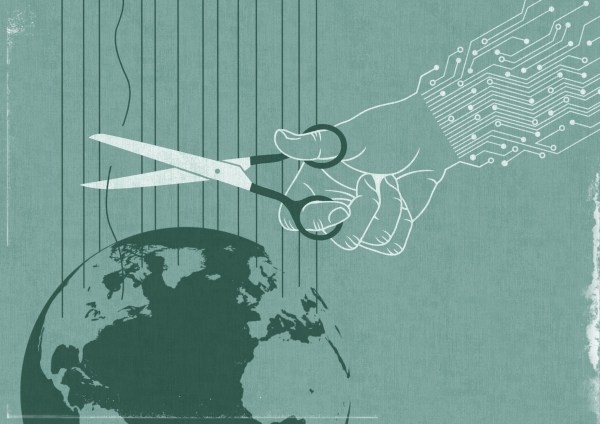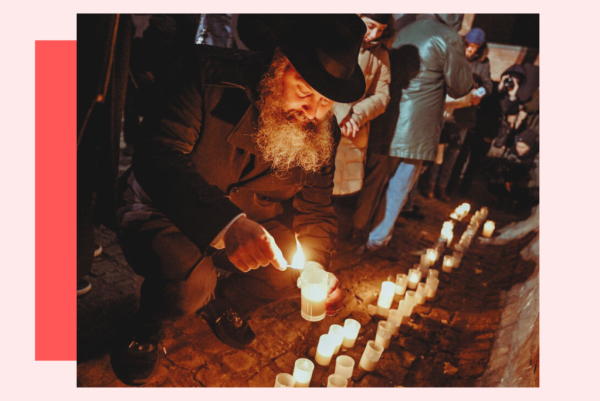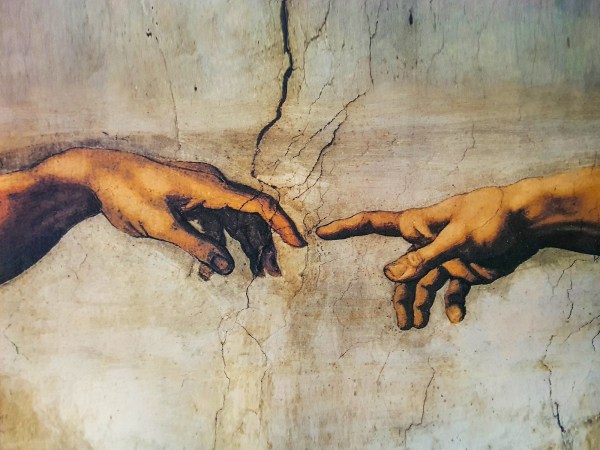Hi and happy Sunday. The intersection of religious faith and politics is always contentious, but it seems more pronounced in an election in which both major party candidates are so unpopular. Christians of all stripes face questions about the proper role of government and politics—especially with so much baggage attached to Donald Trump.
Which religious groups are most active in politics today may surprise you, but in today’s Dispatch Faith, seminary professor and writer Daniel Darling explains why he believes it’s better for the country when Christians bring their faith to bear in the political arena.
Daniel Darling: Why Politically Engaged Christians Are Good for Our Politics

Since pollster George Gallup declared 1976 “the year of the evangelical” there has been an intense focus on the involvement of conservative evangelicals in the life of the nation. Though Christians have engaged civically from the beginning of the republic, believers as a voting block has been the subject of fascination in recent years. In an election year, this conversation is at a fever pitch, with numerous books, essays, and documentaries flooding the marketplace.
The overwhelming implication is that the involvement of Christians, particularly conservatives, in our national life is not only unhelpful, but dangerous. Consider the reaction a simple statement by House Speaker Mike Johnson, who when assuming that office, said, “I believe that scripture, the Bible, is very clear that God is the one that raises up those in authority, he raised up each of you, all of us. And I believe that God has ordained and allowed us to be brought here to this specific moment and time.” Robert P. Jones, founder of the PPRI polling firm and author of books like, The Hidden Roots of White Supremacy, White Too Long and The End of Christian America, wrote in the New York Times that Johnson is “the embodiment of white Christian nationalism in a tailored suit.”
Never mind the fact that reality is more complicated than the narrative. Consider that according to sociologist Ryan Burge, progressive Christians are far more politically active than conservative Christians. And consider new data that suggests a significant cohort of evangelicals routinely sit out elections.
Of course not all reflections on Christianity and politics are so hyperbolic. Many Christians are engaging in a healthy debate about the shape of our public engagement, including thoughtful pieces by Jen Michel and Paul Miller in these very pages.
At the heart of this debate are two questions: Is it a betrayal of mission for Christians of any persuasion or tradition to engage in politics? And is it poisonous for our politics when we do?
One of the arguments against engagement is that political power presents its own worldly perils, a temptation toward the “inner ring” that often leads to spiritual and moral compromises. This is not an empty warning. In his seminal work, God and Government, Chuck Colson, a former Richard Nixon aide who came to faith in Christ and founded the evangelical prison ministry Prison Fellowship, warned of this. He had succumbed to the intoxicating drug that is access to the highest levels of government power. He spoke of the way convictional religious leaders would melt when they stepped into the Oval Office. “Of all people, they should have been the most aware of the sinful nature of man and the least overwhelmed by pomp and protocol,” he wrote. “But theological knowledge sometimes wilts in the face of worldly power.”
But Colson, chastened by his brush with political power, didn’t urge Christians to resist civic engagement altogether. He rightly understood that Christianity is both a private exercise and a public witness. From the very beginning, humans are described by Scripture as communal and not atomistic. “It is not good,” Moses writes in the opening pages of Genesis, “for man to be alone (Genesis 2:18).” God’s dealing with his people was always as a people. From Abraham would come a nation that would “bless all nations (Genesis 12:18).” Even when exiled from Israel, the people of God were to “seek the welfare of the city” in Babylon. This was a command that, with their limited agency, the people of God were to be an active part of the place where they lived. In the New Testament, we read Jesus’ words to “love our neighbors as ourselves,” often called the Great Commandment (Matthew 22:39). He also urged his disciples to be “salt and light” in the world, salt as a cultural preserving agent and light as a contrast to the darkness that often pervades human societies (Matthew 5:36-40).
Of course, situated as a distinct minority in the Roman empire, early Christians had little influence. Still, they wrestled with the tension between their newfound allegiance as citizens of a heavenly kingdom and their obligations to the earthly state. The apostles instructed them to, as much as possible, take their citizenship seriously by submitting to the state unless the state forced them to deny their faith. Perhaps the most detailed instructions are in Romans 13, where the Apostle Paul outlines the limited but important role of civil authority granted by God to the state. According to this passage, God has delegated authority to the state for the sake of the flourishing of her people. Those who hold government power must do it, knowing that they serve as “God’s servant for your good (Romans 13: 4)” who “avenges wrath on the one who does wrong.” This is not only communicating to faithful first-century Christians that it was proper to submit to governing authorities; it’s communicating that those authorities were “instituted by God (Romans 13:1).” In other words, Christian doctrine teaches that all who hold power in society will be held accountable by God for their leadership.
As Christianity grew in the Roman Empire, the church endured severe persecution at the hands of the state. Yet even when marginalized, Christians distinguished themselves not only for their unswerving faith in Jesus Christ but for their countercultural ethic of human dignity. This has been chronicled extensively by historians such as Tom Holland, Rodney Stark, and Kyle Harper.
Consider an early church father, Clement of Rome, who urged Christians: “[Y]ou should do good to and pay honour and reverence to man, who is made in the image of God; that you minister food to the hungry, drink to the thirsty, clothing to the naked, hospitality to the stranger, and necessary things to the prisoner; and that is what will be regarded as truly bestowed upon God.” Historian Gary B. Ferngren writes, “From the beginning Christian charity stood in stark contrast to that of the Greeks and Romans. The church displayed a marked philanthropic imperative, showing both personal and corporate concern for those in physical need (as in Acts 6:1–6).”
In fact, in their defense of themselves before a tyrannical Roman government, church leaders often made the case that the church’s very presence was good for society. One second century apologetic, Letter to Diognetus, outlines the Christian posture toward the world: “To sum up all in one word—what the soul is in the body, that are Christians to the world. The soul is dispersed in all the members of the body, and Christians are scattered through all the cities of the world. The soul dwells in the body, yet is not of the body; and Christians dwell in the world, yet are not of the world. The invisible soul is guarded by the visible body, and Christians are known indeed to be in the world, but their godliness remains invisible.” Christians were to be the “soul” of society, even while possessing little power.
What does this mean for Christians living in America, whose government is “of the people, by the people, and for the people?” It would seem difficult to live out the imperative to exiles (1 Peter 1:1-2) to “seek the welfare of the city (Jeremiah 29:7)” while not engaging, at some level, the opportunity to shape the policies that affect the flourishing of the city. Nor could Christians honestly obey the Great Commandment to love our neighbors as ourselves if—living under a government that affords all citizens the opportunity to do so—we refuse to use our voices and votes to influence the policies that affect our neighbors’ well-being. One might even argue that disengagement in the face of an unjust status quo is itself a silent affirmation of that status quo.
Thoughtful Christians on both sides of our national debates agree on this. Michael Wear, who worked in the faith-based office for former President Barack Obama, is right when he says, “Christians care about politics because we care about our neighbors and our communities. And political decisions impact the well-being of our neighbors. As a citizen, you do not choose to have political influence; you already have it. Politics is within your kingdom. Therefore, sitting out of politics does not absolve you of blame for the state of our politics; your sitting out is your choice about how to steward the responsibility you have been given.”
Political engagement, then, is an unavoidable stewardship. Andrew Walker, a conservative Southern Baptist scholar, concurs: “Politics is fundamentally about how we, as human beings, go about the process of organizing our lives around common goods, goals, and values in whatever setting we are in, including, of course, government. When God calls human beings to be fruitful and exercise dominion over creation (Genesis. 1:28), that is God’s call for human beings and human societies to order themselves for the purpose of cultivating God’s creation.”
So perhaps the question is not whether Christians should engage, at some level, the politics of the polis, but how. Again, the New Testament is instructive here. Peter, who would eventually be martyred for his faith, nevertheless urges the people of God to engage with both distinctive courage and distinctive civility. “Have an answer for every person,” Peter writes, but “do it with gentleness and kindness” (1 Peter 3:15-17). And later, he urges a proper ordering of priorities. “Honor the King,”he writes, “but Fear God” (1 Peter 2:17). Our political engagement must be restrained by a Christian’s primary allegiance to Christ.
But are politically engaged Christians good for society?
But the question remains: Are politically engaged Christians good for American society, and is our involvement good for those who don’t share our faith? There is no question that both in history and in contemporary society, there are always examples of Christians who engage in clumsy or malevolent ways. Still, for every rare partisan in a pulpit, you have genuine American heroes whose faith drove them to the public square to eradicate evil.
Consider what you’d lose if you removed all Christians from politics. You’d not have Martin Luther King’s drive for justice, nor William Wilberforce’s lifelong fight against the British slave trade, nor Susan B. Anthony’s crusade for woman’s suffrage. A public life shorn of Christian witness would mean no hospitals, no care for immigrants, no policies such as PEPFAR, which arguably saved tens of millions of lives in Africa. What’s more, as Father Richard John Neuhaus observed 40 years ago in his timeless book The Naked Public Square, the receding of Christianity from public discourse will only leave a vacuum that other ideologies will fill.
The Founders understood that the American experiment in ordered liberty is enriched by robust Christianity. John Adams, a Unitarian, observed in a letter to his wife, Abigail, that, “Our Constitution was made only for a moral and religious People. It is wholly inadequate to the government of any other.” George Washington concurred, writing, “reason and experience both forbid us to expect that national morality can prevail in exclusion of religious principle.” Their successors, from Lincoln to FDR to Harry Truman expressed similar sentiments. They weren’t arguing for a state church, but for a robust religious culture in which people of faith participate in the life of the republic.
But what of politics in the present moment? Some observers have noted that the discourse has gotten courser even as church attendance in America has significantly declined. Derek Thompson, for instance, lamented the loss of shared community in America in a widely discussed piece for The Atlantic. “America didn’t simply lose its religion without finding a communal replacement,” Thompson, a religious agnostic, wrote. “Just as America’s churches were depopulated, Americans developed a new relationship with a technology that, in many ways, is the diabolical opposite of a religious ritual: the smartphone.” This is probably why our politics today feels more existential and fervent. People have not stopped worshiping, they’ve merely chosen a new object of veneration.
What’s more, the most significant recent decline in church attendance is happening on the right. The book The Great DeChurching, which studied the decline of church attendance over the last 25 years, highlights the way right-leaning, working class populations have dechurched. Sociologist Ryan Burge asserts: “The people who are the most likely to go to church this Sunday are people with a postgraduate degree. People who are least likely are those without a high school diploma.” It is this cohort that has formed much of the new base of the Republican Party. Many still hold on to symbols of Christianity, but they lack the formative weekly rituals of church life. Thus the rhythms of partisanship fill that spiritual and communal void.
The changing electoral map has often thrust conservative churchgoing evangelicals and Catholics into an uneasy political coalition and has changed the nature of the discourse on the right. French conservative Pascal-Emanuel Gobry observes, “Trump’s rise heralds a deeper and, I believe, more significant way in which the American right — indeed, American society at large — has become more ‘European’: secularism.” As New York Times columnist Ross Douthat once said, “If you dislike the religious right, wait till you meet the post-religious right.” Often political observers find it hard to distinguish these two cohorts, confusing mostly pietistic church-attending evangelicals with the worst expressions of politics and faith found, for example, on January 6. Politics-as-god is bad when the left does it with its totalizing statism, and it is bad when the right does it with its version.
This is why we need more, not fewer, people for whom politics is important, but not ultimate, where allegiances to party and candidate are subordinated to something transcendent. Partaking in the weekly rituals of prayer, Bible study, and face-to-face community fellowship brings focus and realism to our public life. Hearing, weekly, that the most powerful leaders in this world have an expiration date, that there is a higher kingdom that demands our ultimate allegiance keeps us from seeing every turn in the news cycle as existential. We engage, but with the hope of a people who believe that Christ “has overcome the world.” Imagine more folks with this heavenly perspective, who have intentionally cultivated virtue, actively voting in our presidential primaries, as a balance to the tiny percentage who actually show up to nominate major party candidates. Imagine more folks who, with a distinctive way of being, are guided by the wisdom of 1 Peter 2:17, where the apostle helps Christians rightly order our heavenly priorities and our earthly commitments: “Honor everyone, love the brotherhood, fear God, honor the King.”
People of faith do not and will not always get this ordering right. Even the best are deeply flawed, unfinished works in progress. But the alternative—a politics devoid of sober Christian witness—is not good news for the country we love.
More Sunday Reads
- The Sikh faith is at the center of a growing international affair involving India, Canada, and now the United States after U.S. prosecutors this week accused Indian agents of conspiring to assassinate a Sikh U.S. citizen. Bloomberg’s Laura Dhillon Kane explained both the religious and the political background. “Sikhism is a monotheistic faith founded at the end of the 15th century in the Punjab region that straddles what today are the nations of India and Pakistan. It developed from the teachings of Guru Nanak, and its holy book is the Guru Granth Sahib. Guru Nanak and his descendants preached equality and unity, defying India’s caste system and rejecting the authority of the priests of the dominant Hindu religion.Throughout history, followers of Sikhism have at times been targeted by both Hindus and Muslims. Today, India’s 23 million Sikhs make up about 1.7% of the population overall, though they are a majority in the state of Punjab. Another three million Sikhs live outside of India, notably in Canada, the UK, the US and Australia. Canada is now home to the largest Sikh population outside of India, with about 770,000 people who reported being of the faith in the 2021 census.”
- Lots of political journalists will focus the next two weeks on the key voting blocs that could decide this presidential election. Clemente Lisi, editor in chief of Religion Unplugged, wrote about a group that could prove consequential in the perhaps the most consequential swing state this cycle: Pennsylvania’s Amish community. “Digital ads don’t work here — the Amish don’t own TVs, computers or smartphones — so GOP activists have had to go door-to-door and to farmers markets to register voters,” Lisi wrote this week. “They hope Trump’s message will appeal to the Amish, especially in the context of culture war politics. Spearheading the effort is Early Vote Action, a group founded last year by Scott Presler. The political action committee was created with the aim of winning Pennsylvania. ‘With the help of Early Vote Action’s dedicated volunteers, we have contacted hundreds of thousands of voters since the inception of our organization,’ the group says on its website. The group added: ‘Using proven methods of voter contact — handwritten postcards and letters, text messages, phone calls, and, of course, boots on the ground — the EVA network has dramatically shifted voter registration totals in counties across America in favor of Republicans.’ [EVA Executive Director Scott] Presler called the Amish community ‘pro-religious freedom, pro-school choice, pro-bodily autonomy, they don’t want the forced vaccinations’ — values that, he added, align with the Republican Party.”
A Different Kind of Sunday Show
Despite hand-wringing about the Republican Party’s seemingly softer political stance on abortion, Baylor University professor Matthew Lee Anderson says this is a moment the pro-life movement should take advantage of. Drawing on two pieces he’s written for The Dispatch in recent months (including one for Dispatch Faith), Anderson joined me on this week’s Dispatch Faith video podcast on YouTube.
A Good Word
For the Jewish Telegraphic Agency, Shira Li Bartov reports on a historic synagogue in Prague that, for Yom Kippur this month, held its first services since the Holocaust. “‘During Communist times, it was very difficult to relate to Jewish identity,’ said [Rabbi David] Maxa. ‘People who visited any kind of synagogue were followed by the secret police, and only after the Velvet Revolution in 1989 did it become possible for people to visit synagogues without the feeling of being followed and put on a list.’ After the end of communism, some synagogues returned to use by the few Jews who still identified as such. Two of the six synagogues that still stand in the Jewish Quarter now are in regular use as houses of worship. But the Klausen Synagogue, which was added to the UNESCO World Heritage list in 1982, remained part of the Jewish Museum, hosting exhibitions about Jewish festivals, early Hebrew manuscripts and Jewish customs and traditions. Museum director Pavla Niklová said returning the synagogue to use for Yom Kippur happened almost by accident. Maxa was asking if she knew about a space large enough to host his growing congregation, Ec Chajim, for the holiest day in the Jewish calendar — its own space, which opened four years ago about a 20-minute walk away, could not accommodate the crowds expected for Yom Kippur. Since the museum had just taken down its exhibition in the Klausen Synagogue after 28 years, she had an answer. The clean, empty space was ready to be refilled with Jewish life. Visiting the synagogue just before Yom Kippur, Niklová said she was awed to see the building returned to its original purpose. She hopes that it will continue to be used for large services. ‘I felt like the synagogue started breathing again,’ she told JTA.”






Please note that we at The Dispatch hold ourselves, our work, and our commenters to a higher standard than other places on the internet. We welcome comments that foster genuine debate or discussion—including comments critical of us or our work—but responses that include ad hominem attacks on fellow Dispatch members or are intended to stoke fear and anger may be moderated.
With your membership, you only have the ability to comment on The Morning Dispatch articles. Consider upgrading to join the conversation everywhere.